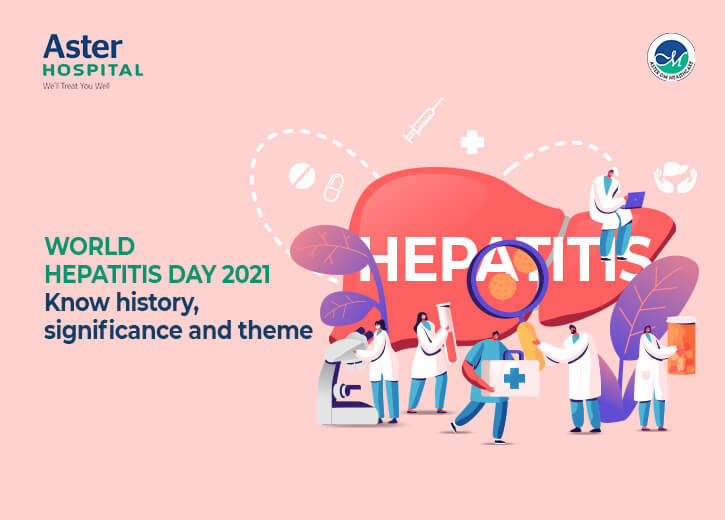Every year, July 28 is observed as World Hepatitis Day to create awareness about Every year, July 28 is observed as World Hepatitis Day to create awareness about viral hepatitis – a serious illness where the inflammation of the liver causes severe liver disease and hepatocellular cancer. The theme for this year was ‘Hepatitis Can’t Wait’. Sadly, every 30 seconds, a person dies from hepatitis-related illnesses. Thus, we cannot afford to wait to act on controlling and finding solutions to a major healthcare concern. The hepatitis virus has a total of five strains – A, B, C, AND E. Both hepatitis B and C are the most common, resulting in the deaths of 1.1 million people and 3 million new infections every year.
There are several risk factors that might increase a person’s chances of contracting the infection that causes hepatitis, such as high amounts of alcohol consumption, toxins, some medications and certain medical conditions.
Why July 28?
July 28 was the birthday of Nobel laureate Dr Baruch Blumberg, who discovered the Hepatitis B virus. Not just that, we also developed a diagnostic test and vaccine to treat the disease.
Why is World Hepatitis Day needed?
-
People that are living with viral hepatitis, unaware of their condition, can’t wait for testing
-
People with hepatitis can’t wait for life-saving treatments
-
Expectant mothers can’t wait for hepatitis screening and treatment
-
Newborn babies can’t wait for birth dose vaccination
-
People affected by hepatitis can’t wait to end stigma and discrimination
-
Community organisations can’t wait for greater investment
-
With the help of real influence, political will and enough funding, decision-makers must act as soon as possible to eliminate hepatitis completely!
The liver plays a crucial part in the digestion process of the body and is one of the most vital organs of our body. Damage to the liver is damage to the entire body as the body depends on it in a major way. Hepatitis is highly contagious. Due to the inflammation, liver tissues react to irritation or injury, generally resulting in swelling and pain. There are many causes of hepatitis, and viral hepatitis is one of the major ones. Viral hepatitis can either be acute or chronic.
The warning signs can be as follows:
-
Dark-coloured urine
-
Stomach pain
-
Jaundice
-
Low-grade fever
-
Loss of appetite
-
Fatigue
-
Feeling sick
-
Aching joints
-
Pale or clay-coloured stool
Implications of viral hepatitis:
-
Liver cancer
-
Destruction of the liver tissues
-
Weakening the immune system
-
Liver failure
-
Death (in certain acute cases)
Prevention
-
Make sure you get vaccinated for hepatitis A and hepatitis B
-
Always use protection during sexual intercourse
-
DO NOT share needles
-
Maintain good hygiene
-
Regularly wash hands with soap
-
Never use items from an infected person
-
Take utmost precautions if you’re getting tattoos
-
Avoid sharing water or any fluids
Treatment
Unfortunately, there’s no treatment as of yet to cure hepatitis A and E. They are usually self-remitting. Hepatitis B and C, however, can be cured through medications. One must visit a doctor if they have any symptoms of viral hepatitis for better management apart from obvious precautions like maintaining hygiene and sanitisation. Even at the slightest sign of any symptom, please visit the doctor. Do not take hepatitis lightly.



